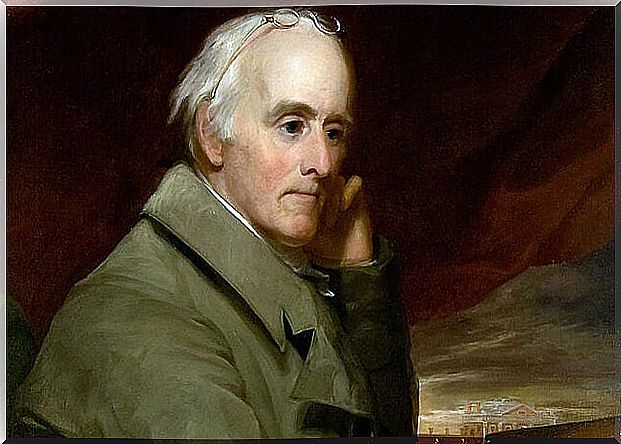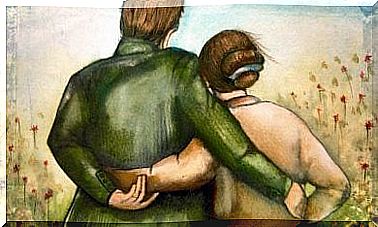Benjamin Rush, Biography Of The Father Of American Psychiatry

Benjamin Rush, who is known as the father of American psychiatry, was a very interesting character. A doctor by profession, he addressed various fields of health, including mental disorders. One of the first books in this regard is his authorship: Study of the influence of physical causes on the moral faculty .
However, the work for which he has been called the father of American psychiatry is Medical Consultations and Observations on Diseases of the Mind , 1812. This is considered the first treatise on psychiatry on the new continent. His interesting annotations gave a great boost to this branch of medicine in America.
However, Benjamin Rush was not only a brilliant doctor. He was also a great activist for the independence of the United States. In fact, his name was stamped on the Declaration of Independence of that country and he is remembered as a great libertarian.

Benjamin Rush’s early life
Benjamin Rush was born in Philadelphia (United States) on January 4, 1746. He came from a family of British immigrants who had arrived in that country less than a century earlier. His father was orphaned when he was just 6 years old. The mother made every effort to ensure that he received an excellent, liberal education.
He received his basic education at the Nottingham Academy in Maryland, which was owned by one of his uncles. He then studied at Princeton College and trained as a doctor at the same alma mater. They convinced him to get his doctorate in medicine from the University of Edinburgh, which was one of the most prestigious of its time.
Benjamin Rush then traveled to Scotland and there he obtained his medical degree. During that period he met several of the most important intellectuals of that time; among them, Benjamin Franklin. When he finished his studies, he returned to Philadelphia, where he began to practice his profession and also became a professor at the Perelman School of Medicine at the University of Philadelphia.
Benjamin Rush, a passionate doctor
Benjamin Rush was completely convinced of the benefits of bleeding, a common medical practice in the eighteenth century. During a terrible yellow fever epidemic that took place in Philadelphia in 1793, this doctor applied a therapy of his own. At first he gave his patients doses of mercury and jalapa, an ancient Aztec remedy with laxative effects. Thus he purged them.
Then he applied indentations to them . These consisted of making a cut and letting the blood flow. He came to do this procedure to up to 100 patients per day. Benjamin Rush did not offer theoretical arguments to justify this practice and for this he was highly criticized. Many of his contemporaries considered it dangerous, but despite this, many people were cured.
At the end of this stage they began to call him “the prince of bloodletting.” Although he had detractors, this did not prevent him from being appointed professor of chemistry in the medical department of the University of Pennsylvania. He was the first person to hold that position in the United States.
The “Hippocrates of Pennsylvania”
Benjamin Rush’s bold medical practices were not limited to Aztec bloodletting and medications. He soon ventured into new fields such as psychiatry. In principle, his work was limited to advocating for better treatment for mental patients who were admitted to hospitals. They were subjected to beatings and harassment, to which Rush was completely opposed.
Later, he used his famous bloodletting on psychiatric patients, as well as cold showers. Those therapies were widely accepted back then and considered valid. What was sought with this was to reduce the psychotic agitation that some patients presented. This also led Benjamin Rush to invent the so-called “appeasement chair. “
This was a chair where the agitated patient was bound hand, foot, and head. At the end a kind of tight box was placed over his head. In this way, he was isolated from visual and auditory sensations so that his agitation would cease. The method also reduced blood flow to the brain and was often successful in appeasing patients.
Benjamin Rush is remembered as a great physician and a great humanist. He opposed slavery and was convinced of the importance of respecting rights, as the basis of society. In the spring of 1813 he contracted a fever and died five days later. He is remembered as the “Hippocrates of Pennsylvania.”









